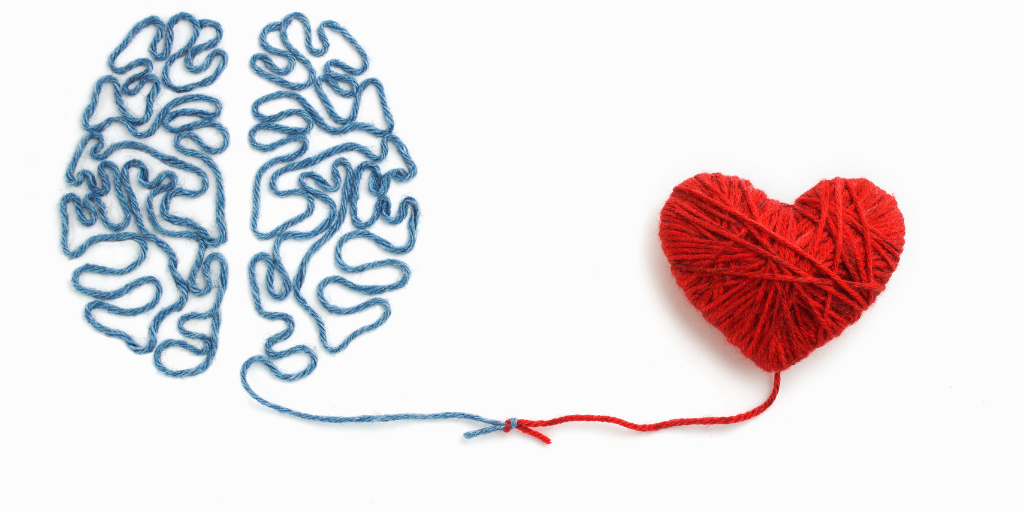One night at home, I was impatiently waiting for my daughter to finish her dinner – which seemed to be taking forever. I was uncomfortable with the waiting. I felt agitated and unproductive. For some reason I rationalized that picking up my phone and scrolling social media would be a better use of my time (for both her and I). In hindsight, I recognize this wasn’t an advantageous solution.
Regardless, I did it. I ate up my time on social media, and within three minutes I started to feel depleted. I felt myself slipping into rough thoughts. The interesting thing was, I wasn’t looking at anything particularly triggering or frustrating. I just slid down into thoughts of not being good enough, not having enough, and not being enough.
Just like that.
I was feeling impatient, but instead of settling down and working on connecting with something more peaceful , I disrupted that opportunity by filling my time with entertainment instead of connecting with my daughter.
Life feels easier when we don’t feel too many things at once. Meaning when our emotions feel balanced and reactivity is at a far reach. However, when we’re dealing with the complexity of our emotions it’s harder to remember what uncomplicated feels like. Emotions are a complex pool that can be filled with ease or tension; either way, we’re swimming in them.
Our thoughts are versions of our emotions acting out and wanting to be seen. Like a child who’s having a tantrum, they’re trying to articulate complex emotions without the language. It’s the same for adults, but outwardly not as volatile (at least for most of us).
We are emotional beings who occasionally think. Or perhaps, we are emotional beings who think too much.
Most of us didn’t have parents who were educated in healthy emotional expression or who could emulate the skills of emotional awareness. Our caregivers didn’t know how to best teach us how to process and move through our feelings in a way that would help us identify what we were experiencing and find healthy ways to speak to those parts of ourselves.
Our emotions become these feelings that often create reactivity. If we feel something positive, we might play that out by acting carefree, slowing down, seeing the good around us or feeling a heightened sense of gratefulness. If a less pleasant emotion percolates up, we may feel frustrated with the people around us, reactive to other people’s words or actions, or anxious and overwhelmed by things that on other days we’d feel little towards.
In my example above, decoding my reaction to social media isn’t as simple as we might think. By now most of us understand that social media provokes the parts of us that feel incomplete. I see people and things happening in the world that antagonize the parts of myself that need attention. It isn’t that anyone partaking on social media is intentionally trying to hurt me (at least not usually), it triggers the feelings that I’ve either been avoiding or not yet unearthed. This happens all the time in our lives, outside of social media.
This is why I continuously encourage therapy, counselling and other growth-oriented modalities and practices that help us unpack the stuff that’s lingering deep within. You’re not broken, but if you have support you have a system set up to help you maintain your health, and you will benefit greatly from it. It’s just like your car: if you don’t change your oil or bring your vehicle to the mechanic when it’s ‘acting up,’ it will eventually break down at an inopportune time (like when you’re on a big road trip, far from home).
Our emotional well-being also needs regular maintenance and attention so that we don’t implode when something difficult happens in our lives (and life is full of challenges). We nurture ourselves so that we take care of the parts that need attention. This helps us with manage stress in our lives when it arrives.
When we lack these skills, we explode on others, shame others, are impatient with our kids or partners, and feel agitated at the smallest things. It can feel like others are intentionally trying to frustrate us. On a physical level, we can experience headaches, tense shoulders, frequent colds and flues, shutting down from the world, anger, tension and pain in the body that isn’t caused by an injury or accident, or a general feeling of exhaustion.
I think we’re beginning to understand the importance of self-care for our emotional well-being, yet I also think there’s a lot of shame associated with struggle. It’s easy to avoid feeling, but only until it’s no longer easy to avoid it.
Meaning eventually all those things we stuff down inside, regardless of our gender, will come to the surface. It will feel harder to explore intense feelings and emotions in your body unless you’ve already found ways that help support you.
It’s a sign of well-being when we take care of ourselves, not a sign of weakness.
Xo
Noelle

